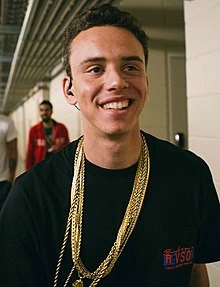By Michelle Wagaman, Prevention Services Coordinator
We all have songs that are special to us. The lyrics. The rhythm. The artist. The memory of the first time we heard it, where we were, or who we were with.
I don’t have brown eyes but Van Morrison’s “Brown Eyed Girl” is the very first song I ever danced with my hubby to long before marriage was a consideration.
We named our daughter Caroline and you better believe that we all sing along loudly every time we hear “Sweet Caroline” by Neil Diamond.
Understandably, I prefer The Beatle’s “Michelle Ma Belle” over the Guns and Roses song titled “My Michelle.”
Music with a Message
If you made it through the Grammy’s last night, you experienced a performance by the rapper Logic. Last spring, he debuted a song titled “1-800-273-8255.” That’s the phone number of the National Suicide Prevention Lifeline. And the song has had a lasting impact. Just review some statistics provided by the National Suicide Prevention Lifeline below.
In a time where artists and celebrities are magnifying their voices for social change, I’m glad suicide prevention is part of the conversation. It’s a lifesaving conversation that we all need to feel more comfortable having.
Songs of Hope
Logic was joined on stage by survivors of suicide attempts and survivors of suicide loss.  Perhaps you even recognized Kevin Hines (top left) standing behind him. Kevin survived an attempt from the Golden Gate Bridge and has spent the last 17 years sharing his story of hope. In the coming months, we’ll be bringing a screening of Hines’ new documentary “The Ripple Effect” to our community.
Perhaps you even recognized Kevin Hines (top left) standing behind him. Kevin survived an attempt from the Golden Gate Bridge and has spent the last 17 years sharing his story of hope. In the coming months, we’ll be bringing a screening of Hines’ new documentary “The Ripple Effect” to our community.
Following the Grammy performance, Google Pixel 2 ran an advertisement encouraging viewers to “Question your lens.” It reminds us that not every picture tells the whole story and uses the “1-800-273-8255” lyrics throughout.
Help is Here
If you or a loved one are struggling with thoughts of suicide, please know that you are not alone. Locally, the Rappahannock Area Community Services Board (RACSB) is available 24/7 at 540-373-6876 to respond to your concerns and help you access the most appropriate care to meet your needs.
Want to learn more and continue this lifesaving conversation? Consider taking the Mental Health First Aid training. Through the 8-hour curriculum, you’ll learn about signs and symptoms, how to have that conversation when you’re concerned, helpful ways to respond, community resources, and so much more. RACSB offers both the adult and youth curriculums several times throughout the year. The youth training is coming up on February 27th and the adult training will be offered March 21 – 22. Visit http://bit.ly/MHFAregistration to learn more.
You are not alone.


